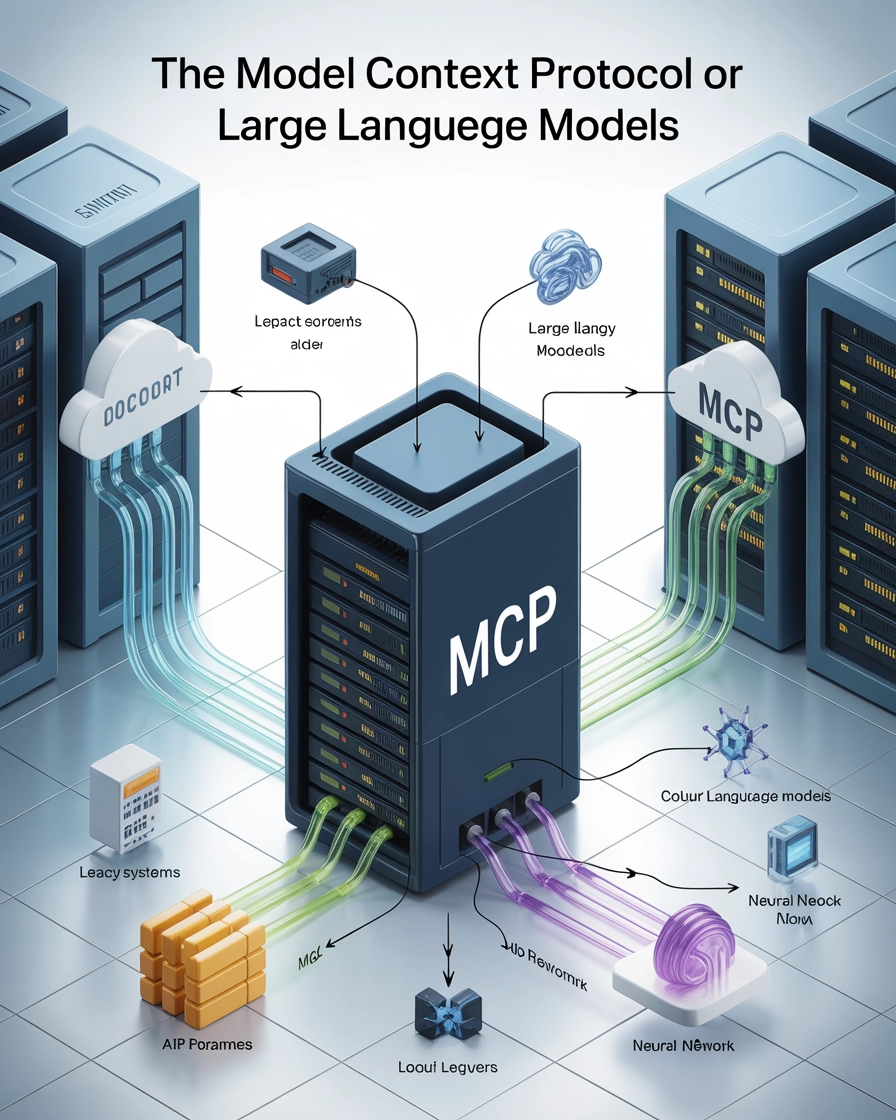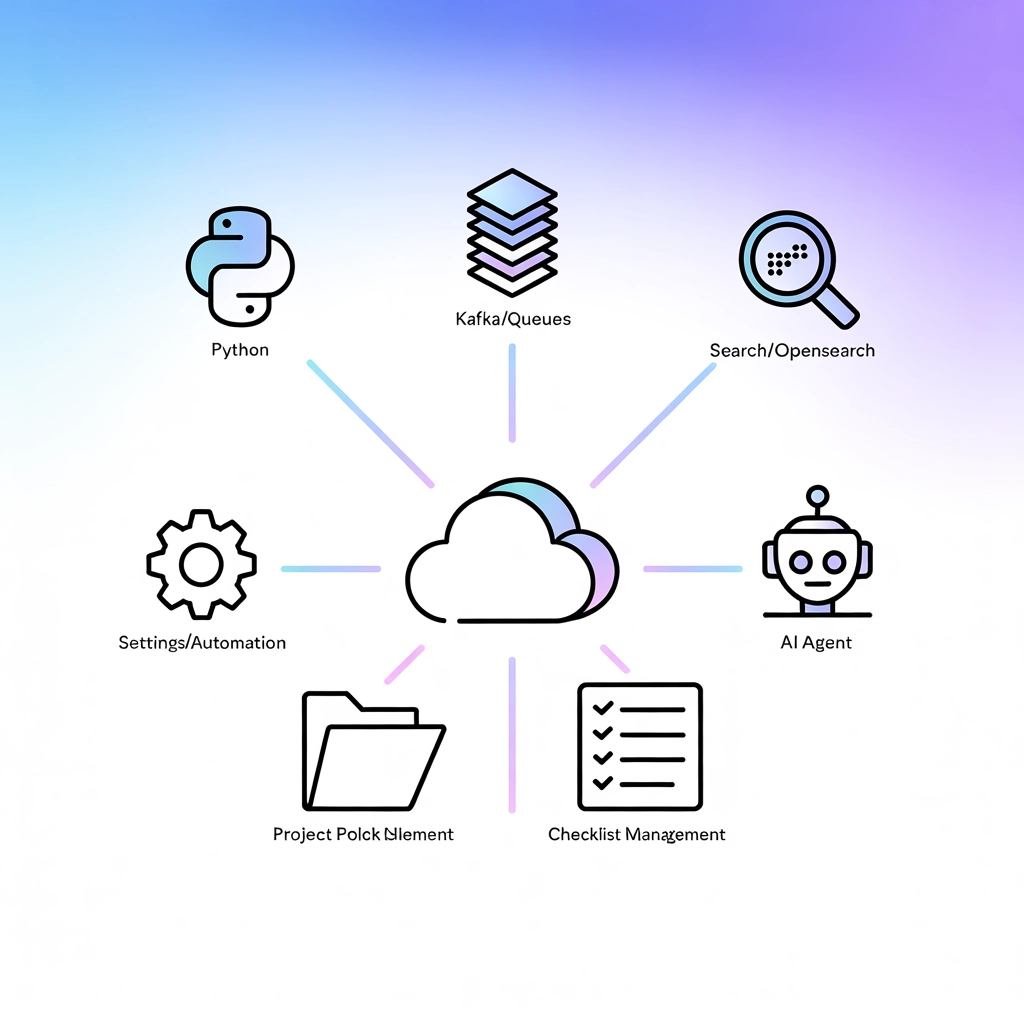
What is Model Context Protocol (MCP)? The Key to Agentic AI Integration
Agentic AI is redefining workflow automation with the Model Context Protocol (MCP), enabling scalable, dynamic integration of AI agents with diverse resources. ...
The Model Context Protocol (MCP) is an open standard interface that enables Large Language Models (LLMs) to securely and consistently access external data sources, tools, and capabilities, acting as a ‘USB-C’ for AI systems.
The Model Context Protocol (MCP) is an open standard interface that enables Large Language Models (LLMs) to securely and consistently access external data sources, tools, and capabilities. It establishes a standardized communication layer between AI applications and various context providers, serving as the “USB-C” for AI systems.
MCP follows a client-server architecture:
MCP defines three fundamental primitives that form the building blocks of the protocol:
Resources represent data and content that MCP servers make available to LLMs.
Example use case: An MCP server exposing a log file as a resource with URI file:///logs/app.log
Prompts are predefined templates or workflows that servers offer to guide LLM interactions.
Example use case: A git commit message generator prompt that accepts code changes as input
Tools expose executable functions that LLMs can invoke (usually with user approval) to perform actions.
Example use case: A calculator tool that performs mathematical operations on model-provided inputs
// Server exposing a single log file as a resource
const server = new Server({ /* config */ }, { capabilities: { resources: {} } });
// List available resources
server.setRequestHandler(ListResourcesRequestSchema, async () => {
return {
resources: [
{
uri: "file:///logs/app.log",
name: "Application Logs",
mimeType: "text/plain"
}
]
};
});
// Provide resource content
server.setRequestHandler(ReadResourceRequestSchema, async (request) => {
if (request.params.uri === "file:///logs/app.log") {
const logContents = await readLogFile();
return {
contents: [{
uri: request.params.uri,
mimeType: "text/plain",
text: logContents
}]
};
}
throw new Error("Resource not found");
});
const server = new Server({ /* config */ }, { capabilities: { tools: {} } });
// List available tools
server.setRequestHandler(ListToolsRequestSchema, async () => {
return {
tools: [{
name: "calculate_sum",
description: "Add two numbers together",
inputSchema: {
type: "object",
properties: {
a: { type: "number", description: "First number" },
b: { type: "number", description: "Second number" }
},
required: ["a", "b"]
},
annotations: {
title: "Calculate Sum",
readOnlyHint: true,
openWorldHint: false
}
}]
};
});
// Handle tool execution
server.setRequestHandler(CallToolRequestSchema, async (request) => {
if (request.params.name === "calculate_sum") {
try {
const { a, b } = request.params.arguments;
if (typeof a !== 'number' || typeof b !== 'number') {
throw new Error("Invalid input: 'a' and 'b' must be numbers.");
}
const sum = a + b;
return {
content: [{ type: "text", text: String(sum) }]
};
} catch (error: any) {
return {
isError: true,
content: [{ type: "text", text: `Error calculating sum: ${error.message}` }]
};
}
}
throw new Error("Tool not found");
});
MCP is an open standard interface that allows LLMs to securely and consistently access external data sources, tools, and capabilities, creating a standardized communication layer between AI applications and context providers.
MCP consists of hosts, clients, servers, and data sources. It uses core primitives—resources, prompts, and tools—to enable flexible and secure interactions between LLMs and external systems.
MCP simplifies AI integration, enhances security, reduces vendor lock-in, and enables seamless access to diverse information and tools for both developers and organizations.
MCP can be implemented through servers that expose resources or tools (e.g., log file access, calculator tools) using a standardized interface, simplifying connections with AI models.
MCP standardizes the process of LLMs invoking external functions or tools, similar to how plugins extend the capabilities of browsers or software.
Start building powerful AI systems with standardized integrations, secure data access, and flexible tool connectivity using FlowHunt.

Agentic AI is redefining workflow automation with the Model Context Protocol (MCP), enabling scalable, dynamic integration of AI agents with diverse resources. ...

Quick example how to develop your own MCP Server with Python.

Remote MCP (Model Context Protocol) is a system that allows AI agents to access external tools, data sources, and services through standardized interfaces hoste...
Cookie Consent
We use cookies to enhance your browsing experience and analyze our traffic. See our privacy policy.